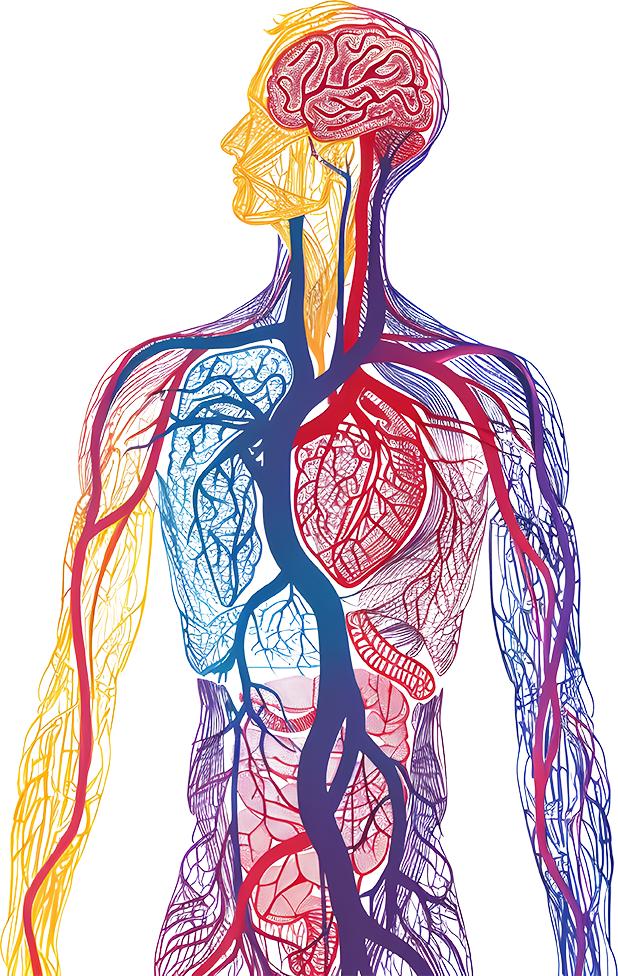About Somatica
Somatica was founded to make Somatic Trauma Therapy widely accessible across Israel, responding to the profound challenges of our time. Recognizing the transformative potential of somatic approaches, we strive to create meaningful impact by bringing the most advanced methods and leading teachers, both local and international, to Israel’s therapist community.
Our mission is grounded in the understanding that the body is key to healing, as life experiences, especially trauma, are stored in the body and continue to shape behavior and well-being long after the events have passed. Our approach prioritizes cultivating flexibility and balance in the nervous and emotional systems, which are essential for achieving comprehensive mental and physical well-being.
Somatica is also pioneering the Somatic Compass, a methodology offering practical tools for regulation and emotional containment during transitions from crisis to stability. The model supports not only individuals but also communities to navigate challenges by a structured, integrative approach.

Our Vision
We strive to empower professionals with practical and innovative therapeutic tools that help them effectively address trauma, foster mental and physical resilience, and restore a sense of personal security and self-connection for individuals and communities. We view the principles of somatic therapy as both a way of life and a worldview, the application of which will contribute to building a more stable and healthier society—one that can navigate crises and emerge stronger than before.
Key Goals
1
Training Therapists
Advanced training tailored to the unique needs of Israeli society and the therapeutic challenges of working with trauma.
2
Professional Community
Building a network of therapists and instructors who collaborate to deepen and integrate knowledge in the field, share insights, and support one another.
3
General Audience
Developing somatic awareness and tools for sensory and emotional regulation after prolonged exposure to traumatic events, with a focus on authorities and communities in peripheral areas.
4
Research and Development
Encouraging research and innovation in somatic trauma therapy and sharing the knowledge gained with both the therapeutic community and the broader public in need.

What is Somatic Therapy?
One of the primary consequences of trauma is a loss of personal security in the body and a disruption in nervous system regulation. When the body no longer feels like a safe space, it can lead to detachment, avoidance, and even dissociation as a way to escape the recurrence of trauma. Somatic therapy for trauma focuses on restoring a sense of safety and connection to the body while developing the ability to remain present during a variety of physical experiences in a regulated and inclusive manner. This approach helps rebalance the nervous system and provides practical tools for self-regulation, enabling conscious recognition of physiological and emotional responses. Over time, this fosters flexibility and healthy adaptability in both the body and mind.
Somatic therapy differs fundamentally from cognitive-behavioral therapy in its approach. While cognitive-behavioral therapy is more “top-down,” somatic therapy uses a “bottom-up” approach, beginning with the body’s physiological reactions, gradually expanding sensory and emotional awareness, and then connecting the body with cognition and behavior. The body serves as the central anchor in treatment, and deeper work cannot occur unless the body is prepared to contain the experience in a present and beneficial way. Since the body is the foundation of how we experience reality, it is a vital part of the therapeutic process.
At the same time, somatic therapy shares some similarities with short-term cognitive-behavioral therapy, including its focus, intensity, and commitment to the therapist-patient relationship. The effectiveness of somatic therapy in achieving short-term goals comes from its emphasis on breaking through physiological and emotional barriers. By doing so, it taps into the patient’s natural resources, improves daily functioning, and supports the realization of personal goals.
Meet the founders

Vitaly Vainblat
Vitaly is a trauma-focused somatic therapist and group facilitator with expertise in developing tools for resilience and somatic awareness. He treats clients at “Hosen Eshkol”, facilitates therapeutic groups for the “Shavim” project of the IDF Disabled Organization, leads emotional processing groups for men, and sees patients in his private clinic. Vitaly also developed the “Somatic Compass” – a unique model for regulating and containing the effects of ongoing war and trauma. As a teacher, facilitator, and lecturer in various training frameworks, he plays a key role in advancing knowledge and tools in the field of mind-body therapy.

Avital Rozen
Avital is an entrepreneur with extensive experience in managing multidisciplinary projects. Her achievements include establishing a prominent training center in the field of cleantech technologies, managing community education initiatives both locally and internationally, and serving as CEO of a training center for trauma treatment. In addition, Avital provides individual counseling and facilitates group processes, blending body, mind, and spirit in her own unique approach. Her ability to combine managerial vision with professional expertise make her an ideal leader in driving significant change in the Somatic Therapy field.
Avital Rozen and Vitaly Vainblat share their life as partners and visionaries.